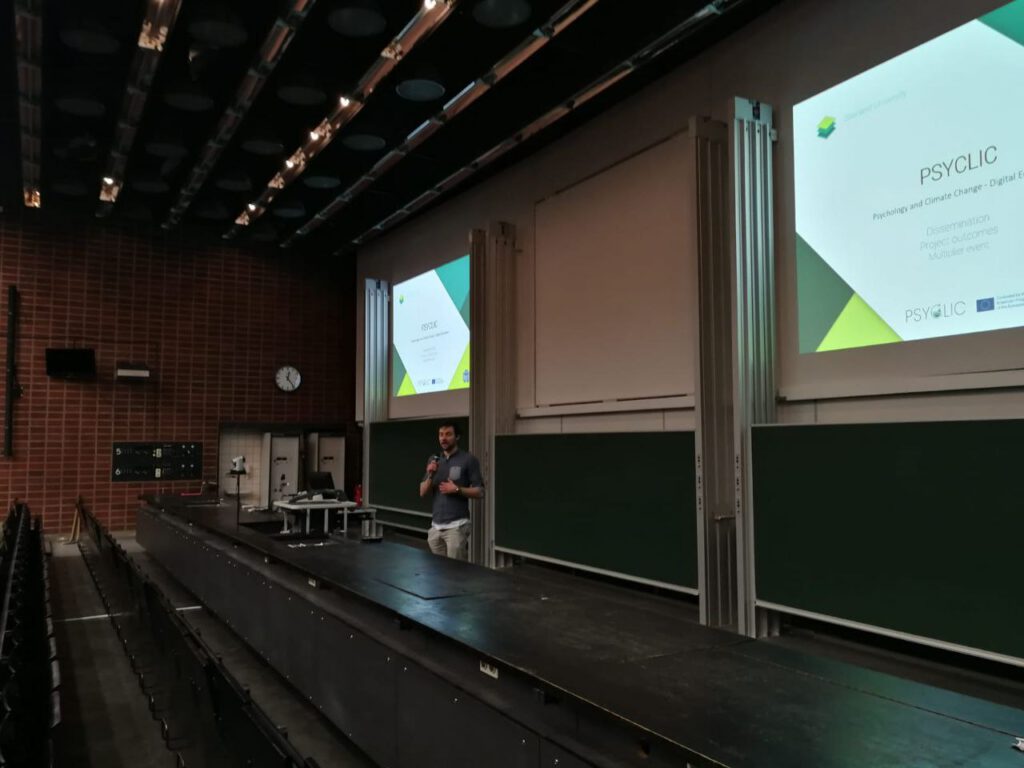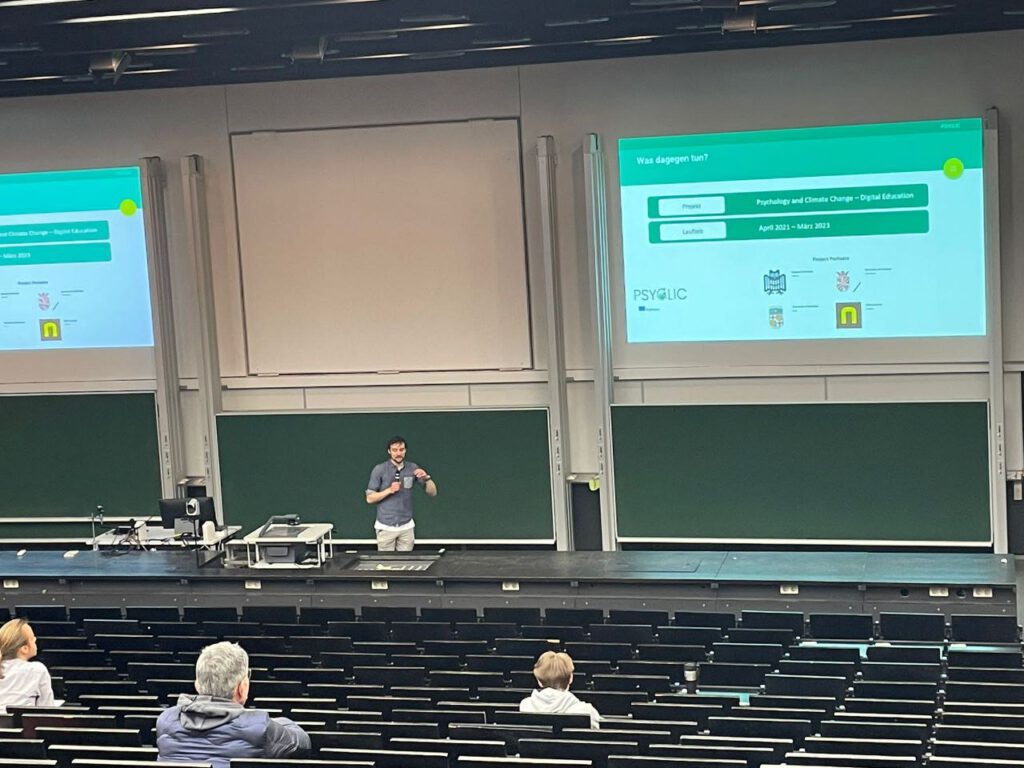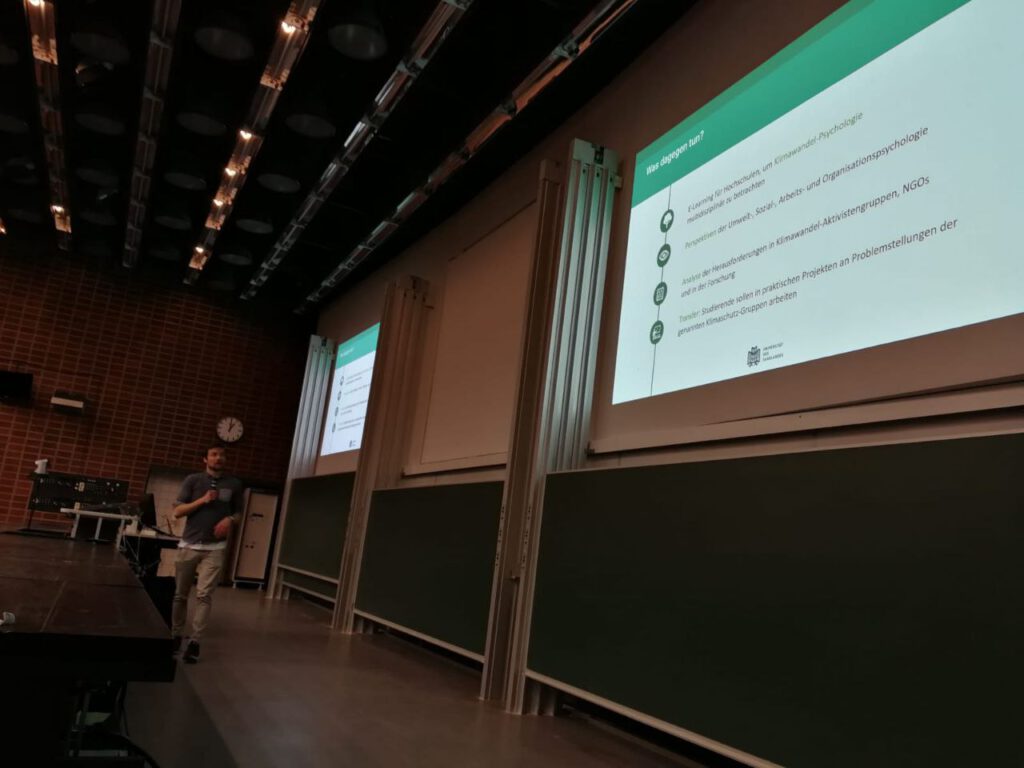On the 11th of February, Saarland University in Saabrücken was the stage for a multiplier event that celebrated the outcome of the PSYCLIC project. The project, funded by the ERASMUS+ program, had as its primary goal the creation of new career paths for students of psychology and other related fields. Through a multidisciplinary approach that combined social psychology, environmental psychology, and industrial & organizational psychology, the project focused on the intersection of climate change and psychology.

The main achievement of the PSYCLIC project was the development of an e-learning course that offers a comprehensive resource for students and educators who wish to understand better the connection between climate change and psychology. The course was designed for implementation in higher education institutions, and it represented an essential resource for those interested in exploring the impact of psychology on climate change.
The multiplier event held at Saarland University was a unique opportunity for students, educators, and professionals to come together and engage in discussions about the PSYCLIC project’s goals and objectives. Participants had the opportunity to learn more about the e-learning course and the ways in which it could contribute to opening up new career paths for students of psychology and other related fields.
The event was attended by a diverse audience of students, educators, and professionals interested in the intersection of climate change and psychology. Through lively discussions and engaging presentations, the participants gained a deeper understanding of the importance of psychology in addressing the challenges posed by climate change.
The multiplier event at Saarland University was an excellent example of how the PSYCLIC project has opened up new opportunities for students of psychology and other related fields. Through the development of the e-learning course and the organization of events such as this one, the project has contributed to broadening the horizons of those interested in the connection between climate change and psychology.

